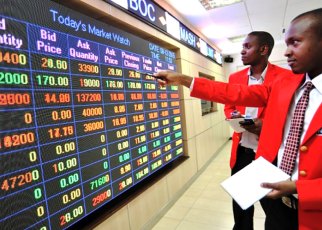Data presented from the PricewaterhouseCoopers (PwC) Nigeria 2019 African Capital Market Watch which reviewed the performance of Africa’s capital markets between 2010 and the first quarter of 2020, shows that African equity capital markets activity have seen a downward trajectory over the past three years as major economies on the continent are faced with fiscal challenges due to growing debt levels and slow economic growth.
The Making Finance Work for Africa (MFW4A) partnership and PwC Nigeria co-hosted a webinar to explore the impact of COVID-19 on African capital markets last month.
Capital market value in 2019 was the lowest seen over the past decade, with the volume of deals lower only in 2012. African economies now face the unprecedented challenge of the COVID-19 pandemic, which has severely impacted global financial markets, according to Andrew Nevin, PwC Nigeria’s Chief Economist, and Alice Tomdio, the firm’s Director Capital Markets, who presented the data.
Commenting on the data and the potential impact of the COVID pandemic, Geoffrey Odundo, CEO of the Nairobi Securities Exchange said: “Capital markets in East Africa have taken a hit, with a 20% decrease in trading volume since the beginning of COVID-19.”
On the positive side, there was increased activity from domestic investors, he added.
Daniel Ogbarmey Tetteh, Director-General, Securities and Exchange Commission (SEC), Ghana, said that market activity on the Ghana stock market had remained robust, with an almost threefold increase in trading volumes between January and April 2020, compared to the same period in 2019. Again, a good proportion of these trades originated from domestic investors.
Speakers also stressed the important role of African capital markets in supporting the post-COVID recovery. For this to happen, African markets need to be deepened and provide avenues for investment of the significant pools of local capital currently tied up in “dead” assets.
Expanding the range of available asset classes should also include measures to attract and support new listings. The panel agreed that the increased engagement of local investors in the current environment was a positive sign, and that developing a deep pool of domestic investors is essential for African capital markets to play their full role in supporting the post-COVID economic recovery.










